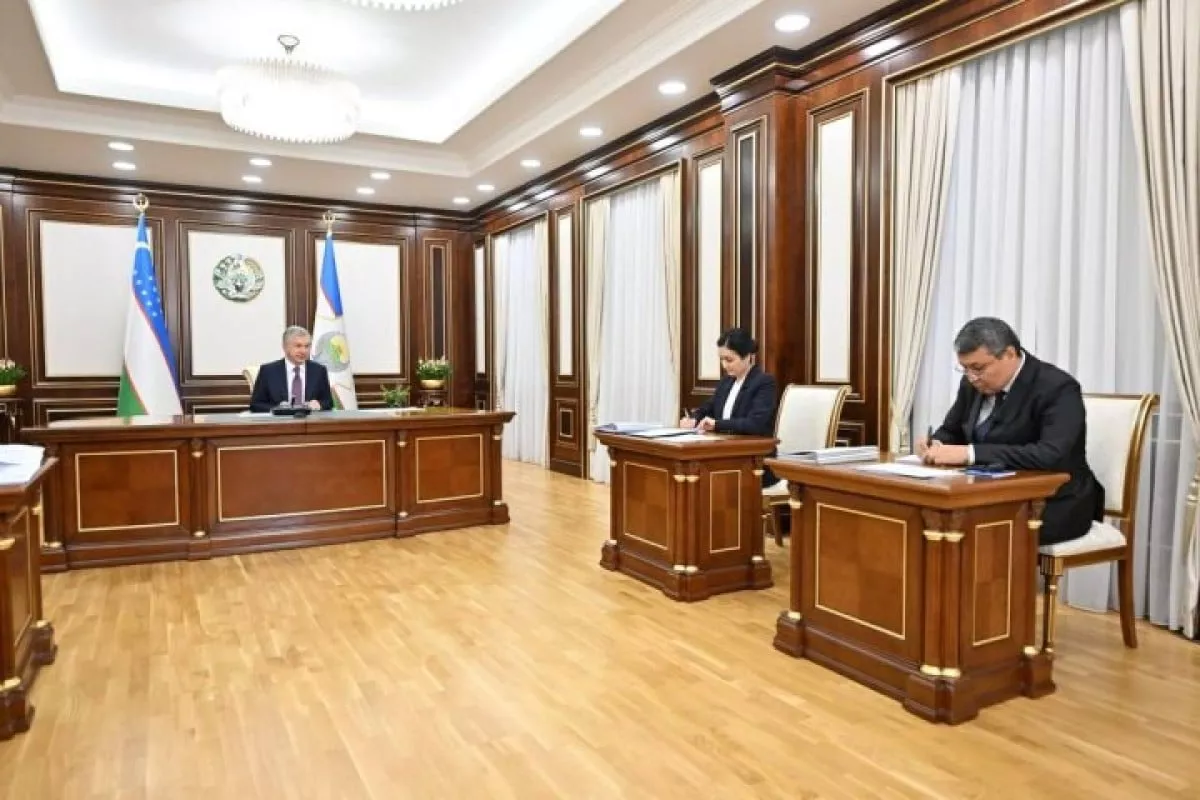State services system will be reformed for three years

The President of the Republic of Uzbekistan, Shavkat Mirziyoyev, reviewed proposals aimed at fundamentally reforming the justice system's state services and expanding their scope. This was reported by Upl.uz.
These measures will be approved by relevant decrees and resolutions, marking a new stage in the fight against bureaucracy and serving to simplify and facilitate citizens' interactions with government bodies. Over the past eight years, nearly seventy normative documents have been adopted, and 202 state service centers operating on the "one-month" principle have been established.
Nevertheless, there are still several problems within the system. In particular, due to insufficient development of inter-agency electronic cooperation, obstacles remain for citizens.
Additionally, more than 200 services are still provided under the old system, and the availability of state services, especially in remote areas, remains a pressing issue. As a solution to these problems, a comprehensive plan for the next three years has been developed.
The plan envisions increasing the number of state services to 900. The main task is to simplify 80 types of services annually based on the "three-step" principle.
This means a significant reduction in service delivery processes. Furthermore, a network of 1,100 interactive information kiosks will be established in densely populated areas and remote localities.
One of the most anticipated innovations is the abandonment of the requirement to present the original identity document in notarial services. Citizen identification will be carried out using modern Face-ID technology.
This is part of the program to eliminate paper document circulation, which will cancel the obligation to provide 30 types of various certificates and documents. For example, civil registry offices will stop requesting medical examination results from young families, and defense departments will automatically receive documents about changes in the residence of persons registered for military service through online systems.
Significant changes are also expected in the notary field. Currently, only 11 percent of more than 80 types of services are provided online, which is deemed insufficient.
Therefore, the head of state has set the task of accelerating digitization. From 2025 to 2027, 20 types of notarial actions will be gradually fully transferred to a remote format.
Reforms will also be implemented in the field of forensic examination. Currently, 64 types of studies are conducted at the Khadicha Sulaymonova Forensic Examination Center in the capital, but this figure is halved in the regions.
The task has been set to strengthen the material and technical base of local units and increase the number of examinations from 15 to 25. Digital technologies, including 3D modeling of road traffic accident scenes and the examination of videos and photographs, will be introduced, reducing human factors.
Additionally, initiatives to expand independent forensic examination activities and establish the Uzbekistan Chamber of Forensic Experts will be supported. To improve citizens' legal literacy, the "Smart Explanation" system will be launched.
It will purposefully inform citizens and entrepreneurs about new legislative acts through electronic services. Moreover, the AdliyaTV internet platform will start operating, where specialists will explain legal norms in simple and understandable language.
One of the important institutional changes is granting ministries and agencies the right to register their normative legal documents in a simplified state registry. The registration period will be halved.
This measure aims to increase the responsibility and initiative of leaders. The system of providing state services in Uzbekistan based on the "one-month" principle was first piloted in 2013

